Beard on Pasta James Beard Introduction by Julia Child
 ContentsIntroductory NoteIt is wonderful for all of us who treasure James Beard to know that his works are being kept alive for everyone to enjoy. What a pleasure for those of us who knew Jim to read him again, and what a treasure and happy discovery for new generations who will now know him. He reads just as he talked, and to read him is like being with him, with all his warmth, humor, and wisdom.Beard appeared on the American culinary scene in 1940, with his first book, Hors dOeuvre and Canaps, which is still in print more than fifty years later. Born in Portland, Oregon at the beginning of this century, he came from a food-loving background and started his own catering business after moving to New York in 1938. He soon began teaching, lecturing, giving culinary demonstrations, writing articles and more books (eventually twenty in all). Through the years he gradually became not only the leading culinary figure in the country, but The Dean of American Cuisine.
ContentsIntroductory NoteIt is wonderful for all of us who treasure James Beard to know that his works are being kept alive for everyone to enjoy. What a pleasure for those of us who knew Jim to read him again, and what a treasure and happy discovery for new generations who will now know him. He reads just as he talked, and to read him is like being with him, with all his warmth, humor, and wisdom.Beard appeared on the American culinary scene in 1940, with his first book, Hors dOeuvre and Canaps, which is still in print more than fifty years later. Born in Portland, Oregon at the beginning of this century, he came from a food-loving background and started his own catering business after moving to New York in 1938. He soon began teaching, lecturing, giving culinary demonstrations, writing articles and more books (eventually twenty in all). Through the years he gradually became not only the leading culinary figure in the country, but The Dean of American Cuisine.
He remains with us as a treasured authority, and the James Beard Foundation, housed in his own home on West 12th Street in New York, keeps his image and his love of good food very much alive.Beard was the quintessential American cook. Well-educated and well-traveled during his eighty-two years, he was familiar with many cuisines but he remained fundamentally American. He was a big man, over six feet tall, with a big belly, and huge hands. An endearing and always lively teacher, he loved people, loved his work, loved gossip, loved to eat, loved a good time.I always remember him for his generosity toward others in the profession. For instance, when my French colleague, Simone Beck, came to New York for the publication of our first book, my husband and I knew no one at all in the food business, since we had been living abroad for fifteen years. Nobody had ever heard of us, but our book fortunately got a most complimentary review from Craig Claiborne in the New York Times.
Although we had never met him before, it was Jim who greeted us warmly and introduced us to the New York food scene and its personalities. He wanted friends to meet friends, and he literally knew everyone who was anyone in the business. He was not only generous in bringing them together, but eager that they know each other. It was he who introduced us to the late Joe Baum of the then-famous Restaurant Associates and The Four Seasons, among other famous restaurants. He presented us to Jacques Ppin, at that time a young chef from France who was just making his way in New York, and to Elizabeth David, Englands doyenne of food writers, as well as to many others.It was not only that he knew everyone, he was also a living encyclopedia of culinary lore and history, and generous about sharing his knowledge. So often when I needed to know something about grains, for instance, I would call him and if the information was not right in his head, he would call back in a few minutes either with the answer or a source.
This capability and memory served him well in his books and articles, as well as in conversation and in public interviews.James A. Beard was an American treasure, and his books remain the American classics that deserve an honored place on the shelves of everyone who loves food.Julia ChildApril 1, 1999ForewordCooking and eating pasta has been a tremendously important part of my lifeliterally for as long as I can remember. As a child in my grandmothers kitchen, I was often assigned the task of tasting the pasta as it cooked, to see if it had reached the proper degree of al dente. (They probably gave me this job because I was always so impatient to eat!) When, many years later, I picked up a copy of Beard on Pasta and thumbed through the recipes, my first, somewhat startled, reaction was This isnt an Italian cookbook! Of course, had I begun reading at the beginning, I would have learned that from Beard himself. In re-reading the introduction to Beard on Pasta now, I was reminded of why it is so important to keep James Beards legacy alive and available. So much of the mans personality is right here in these few pages.
You get to meet Beard the scholar, the affable, never didactic teacher, the unabashed lover of food, and the genial host. You know you are in for a great education, but Beard puts you so very much at ease that it turns out to be damned good fun, as he would say.Personally, I owe a great deal to James Beard. I worked in restaurants during high school and in my early years of college. Barely out of my teens, I had the good fortune to meet with the master in the Greenwich Village apartment he speaks of so lovingly in this book. Ill never forget how generous Beard was with his time, his humor, and his advice as we sat in the kitchen and talked about food and about cooking. Then we talked about my future as a cook.
Our discussion marked a major turning point in my life. Through Beards intense joy and enthusiasm for cooking, I suddenly found the validation and the encouragement I needed to leave college and enroll in a culinary school. I set my sights on a career in the restaurant business and never looked back.We didnt meet again until several years later. I was working as Saucier for Michel Gurard in his fabled 3-star restaurant in southwest France, and James Beard was our guest for lunch. I still recall his surpriseand delightas I greeted him in the elegant dining room, and thanked him for his role in helping me find and realize my dream.While I cannot promise that reading and cooking with Beard on Pasta will inspire you to become a professional chef, I am confident that you will completely enjoy this book. The recipes have such a comfortable, homey appeal.
They welcome you into the kitchen, just as James Beard did for me many years ago. And that is whats wonderful about Beard: His work demystifies so many areas of cooking and food lore. It nudges things down from the rarefied heights of gastronomy (Beard detested the word gourmet) and into the realm of the familiar, the approachable. I find the book as enticing as a favorite armchair, a roaring fireplace, and a pair of warm slippers. But really, the opening line of Beards introduction, disingenuous as it may seem, says it all: Enjoy!Michael RomanoOctober 1999IntroductionThis is a book of good times to have with pasta.
I never get tired of pasta, any more than I get tired of bread. I eat it when Im exhausted and want a quick meal that will give me a lift.
I eat it when Im in an ambitious mood, looking for something pleasant and different to compliment a guest.When I want something spicy, I toss spaghetti with warm olive oil, garlic, and anchovies. When I want something voluptuous, I bake elbow macaroni in a cheese-rich bchamel sauce. And, when Im fed up with complicated foods, I fill a bowl with piping-hot green noodles and cover them with icy tomatoes and scallions in a sharp vinaigrette.

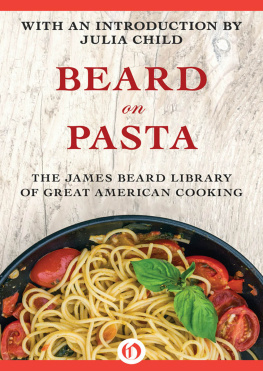

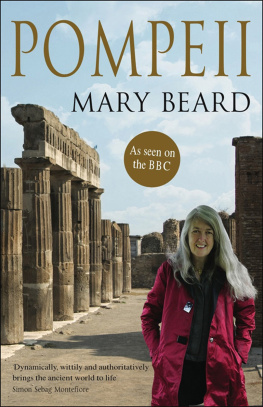
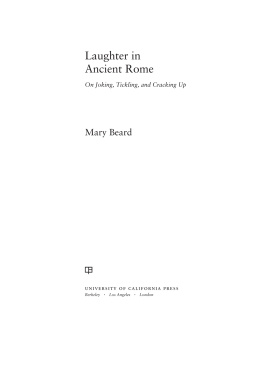
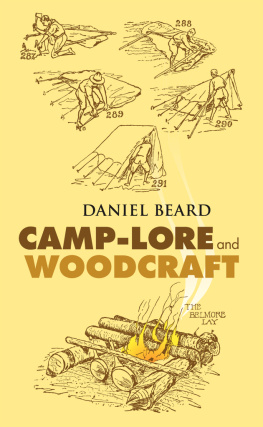
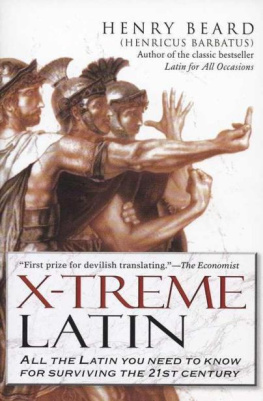
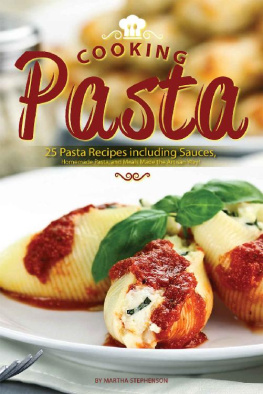

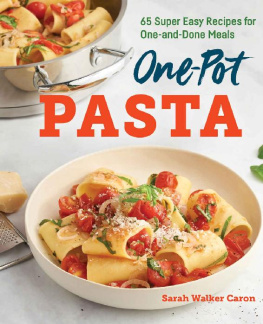
![Missy Robbins - Pasta : The Spirit and Craft of Italys Greatest Food, with Recipes [A Cookbook]](/uploads/posts/book/300525/thumbs/missy-robbins-pasta-the-spirit-and-craft-of.jpg)
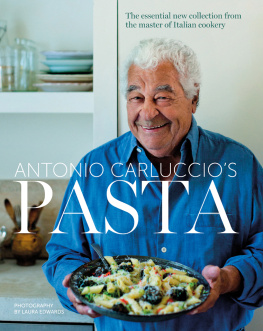
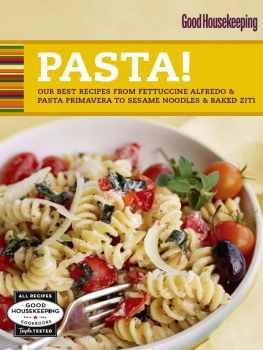
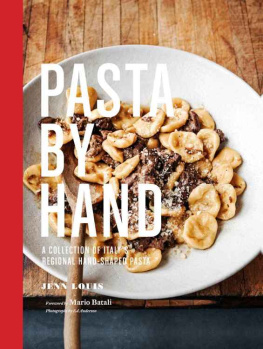
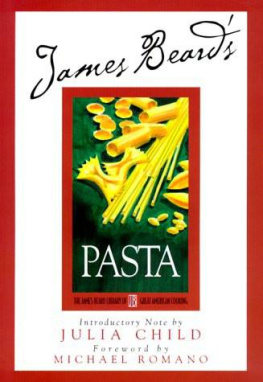

 Contents
Contents